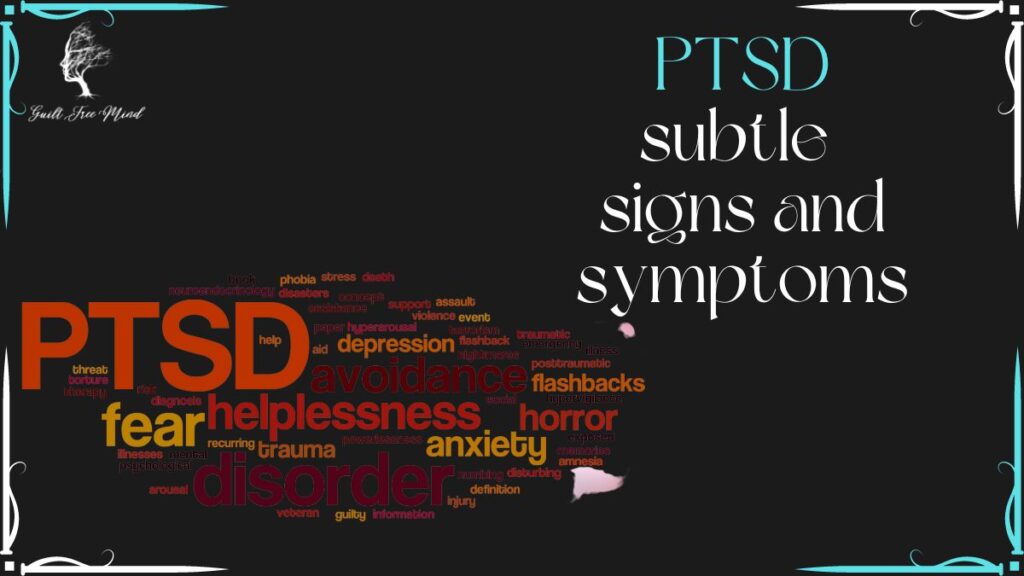In my previous blog post, I discussed what PTSD is, identifying PTSD signs, and finally, what recovery options are available for someone who is suffering from PTSD. In today’s blog post, I aim to discuss the subtle PTSD signs.
Table of Contents
PTSD
PTSD is an extremely debilitating condition. It can either start immediately after suffering through a traumatic event, or it may take a few months to start showing its symptoms. People with PTSD find it hard to cope with their day-to-day activities and lead a normal life. Sudden stimuli like a loud noise, clapping of hands, and sudden movement can act as triggers in the case of PTSD.
Suffering from psychological or physical trauma does not automatically predispose you toward having PTSD. PTSD is dependent on a wide variety of psychological and environmental factors. You may suffer from a life trauma and yet not develop PTSD. On the other hand, a person may develop PTSD and yet not show the signs and symptoms that are mentioned in the book. Therefore, if you suspect that your loved one is suffering from a trauma-related disorder, it would be a good idea to check out the subtle PTSD signs as well.
Subtle PTSD signs
Just because your loved one is not coming up to you and saying openly that they are facing trauma flashbacks or night terrors does not mean that they are not suffering from PTSD. If your loved one has been through a traumatic experience within the last few months, you should be on the lookout for any behavioral sign that is out of the ordinary.
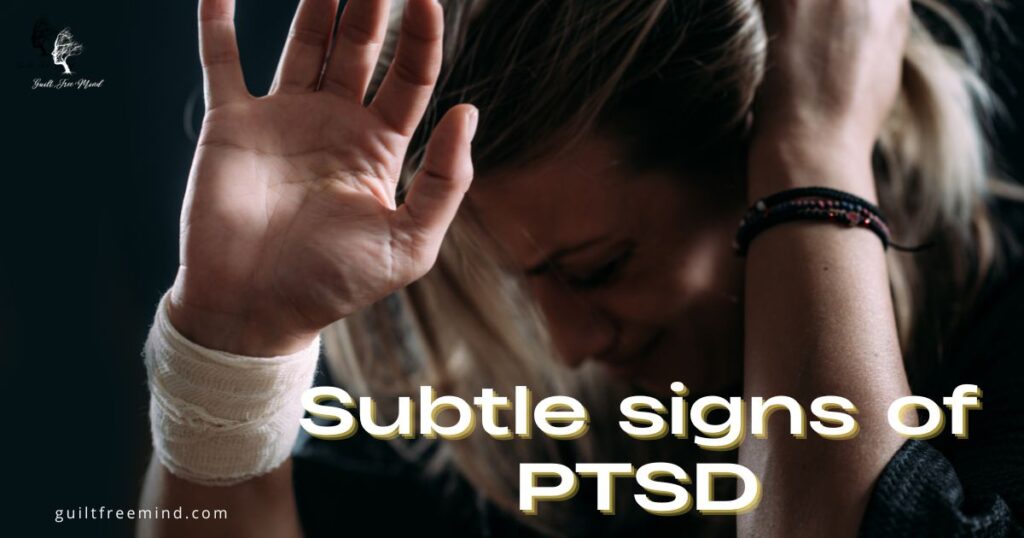
In most cases, people do not wish to disturb and worry their loved ones. Thus, they may try to bottle up their feelings and compartmentalize them in their own minds. However, the feelings, images, triggers, and experiences related to the trauma do not go away by compartmentalization. They still lurk in the back of the mind. The constant loop that goes on in the head of a person suffering from PTSD may make them much more vulnerable to developing anxiety, depression, and other stress-related disorders. Therefore, even if your loved one is masking their symptoms, you need to keep a close eye on them and identify if they are revealing subtle PTSD signs.
The PTSD signs that you may land up overlooking
You may be surprised to know that most people who suffer from PTSD prefer not to discuss or bring their issues to the surface. The only way to identify their problem is to identify the subtle signs. Here are the most common subtle PTSD signs:
Avoidance
No one wishes to live through their turmoil over and over again. As I mentioned before, your loved one may not want to bother or burden you with their problems. They are worried that they will be judged and possibly ridiculed. They are also afraid that they may be labeled as dangerous or mentally unfit by society. Therefore, they may not reach out. However, one way of easily identifying if someone is showing PTSD signs is to check if they are avoiding certain places or people.
Avoidance stems from the trauma. The victim will tend to avoid the place or person that caused the trauma in the first place. If someone had a car accident, the person might be reluctant to visit the accident site even years after the actual accident. If someone experienced emotional trauma from another person, they might try to avoid bumping into their abuse at all costs.
Such people avoid talking about the problem and the incident because they do not wish to be deemed as mad or mentally unstable by society. Thus, they prefer to stay isolated and aloof from acquaintances and their loved ones. You may feel that they are pushing you away and closing up on you. If you notice such behavior, it may be a sign that the person is suffering from PTSD.
Misplaced connections
Unfortunately, PTSD does not develop immediately after the traumatic episode. PTSD may develop a few months or years down the line. Therefore, loved ones may find it extremely hard to understand that an incident that has occurred in the distant past of the person can cause The eruption of PTSD signs much later in life.
The problem with a late eruption of PTSD symptoms is that even the person who is showing PTSD signs may not realize the root cause of the symptoms. It becomes particularly difficult to connect the two events as the sufferer may not even understand what’s causing the symptoms to occur in the first place. Unfortunately, because of this, symptoms that may seem to be anxiety or depression may actually be PTSD signs. However, thanks to the long gap in the timeline, the affected person or the family members may not be able to add the two and two together.
Refusing getting help
This point is not only restricted to those suffering from PTSD. Even people who suffer from depression, anxiety, and other mental health-related disorders refuse to get help at times. This is because they believe that they can manage the symptoms on their own. However, people need to understand that sometimes self-help is not an option, especially if the symptoms have progressed to a person having frequent night terrors and flashbacks.
If a person is showing minor signs of PTSD, anxiety, and depression, they can be managed by oneself. However, in severe cases of PTSD, the brain’s neurochemistry undergoes a change. This makes it difficult to use self-help options for battling PTSD. Under such conditions, the sufferer should reach out for help from friends, family, and a mental health practitioner.
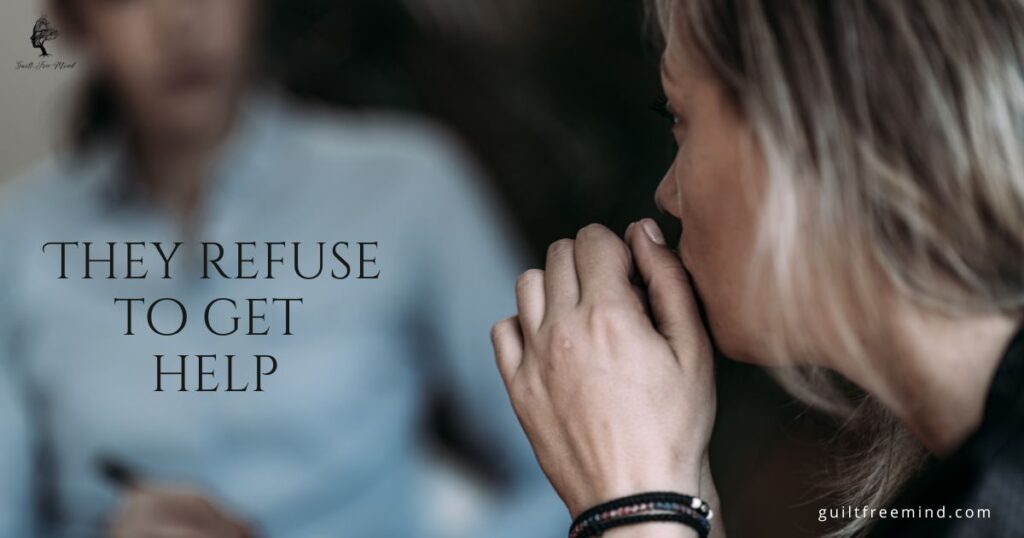
Guilt
Those who have had a traumatic experience in the past and survived through it may also experience guilt. This guilt is the survivor’s guilt. They may also start to blame themselves for the occurrence of the event in the first place. Some people feel that the pain, night terrors, and PTSD signs that they are experiencing are because of their sins, and this is their penance or way to pay for their misdeeds and wrongdoings.
Such people may even start verbalizing the feeling that they deserve to be in distress. Therefore, they will welcome the symptoms. They:
- will not actively seek out help from friends, family, or a mental health practitioner
- may deny that they are facing any distress in their life
- may choose to suffer silently and pay for the sins they have committed.
Embarrassment
If the victim has suffered emotional or physical abuse in the past, they may feel embarrassed to discuss the trauma and challenges with anyone. Sharing a trauma that makes a person feel vulnerable is like opening oneself to another person’s judgment and ridicule. If the other person accepts, understands, and does not ridicule, well and good. However, there is always a chance that the other person may not see the trauma as a life-changing experience. They may also ridicule the victim for making a big deal out of it or make fun of the victim for the situation they got themselves into. Under such conditions, people may feel reluctant to expose themselves and make them vulnerable to their friends and family.
Non-disclosure of past trauma is a way for the mind to protect the person. This is self-preservation at its best. Unless and until such people find a person that they can discuss their past with without being judged, they will not open up.
Changes in behavior and mood.
This is another PTSD sign that is common in the case of PTSD, as well as a few other mental health disorders. People with PTSD may suffer from mood swings. They may suddenly start to feel angry or sad but not realize why they are feeling a certain way. Unfortunately, one of the complications of PTSD is depression. Some of the other complications of PTSD include anxiety-related disorders like agoraphobia, social anxiety, obsessive-compulsive disorder, or panic disorder.
The problem with PTSD is that the psychologist has to figure out if the anxiety-related disorders or depression were present before or if they came into being as a result of PTSD.
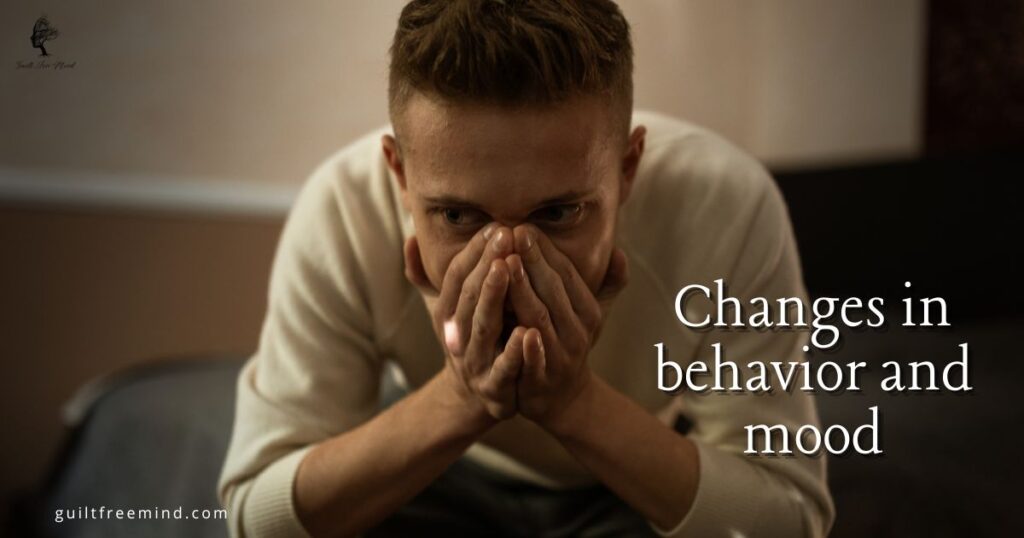
Even if a clinician is involved, the person may be confused when it comes to differentiating between the two symptoms and identifying which one started affecting the victim before the other. Furthermore, these sudden changes in behavior and mood can alienate the person from their loved ones or from those whom they can seek support from. Thus, they land up reducing their chances of getting help.
Changes in substance use
Very often, people who are suffering from PTSD turn to substances to help cope with the trauma. However, substance use does not numb the pain or reduce the symptoms. It only dulls the person’s senses for a short time. Substance abuse also causes dependency. Therefore, leaving the bad habit can become very difficult in the long run.
Unfortunately, the loved ones and the people involved in the support system fail to understand why the person has resorted to substance use suddenly since all the other signs are fairly subtle. Furthermore, as I mentioned before, in delayed onset PTSD, the symptoms are hard to recognize by family members and loved ones. This is due to the timeline gap between the trauma and the onset of the symptoms.
Role of the support system
It can be really hard to identify who is suffering from PTSD only based on their symptoms. The symptoms of PTSD also coincide with anxiety, depression, and other stress-related disorders. Therefore, most often, when a loved one approaches for help, they are told:
- It is just a phase. It will pass,
- You are being too dramatic
- You should start taking lives lightly
- Why the sudden behavioral change? What is wrong with you?
These are not the phrases a person asking for support wants to hear. They want you to show real involvement in their problem, genuine interest in understanding what they are going through, and finally, support in terms of love and understanding. PTSD already takes a mental and physical toll on the person. A little support can go a long way in helping a person recover.
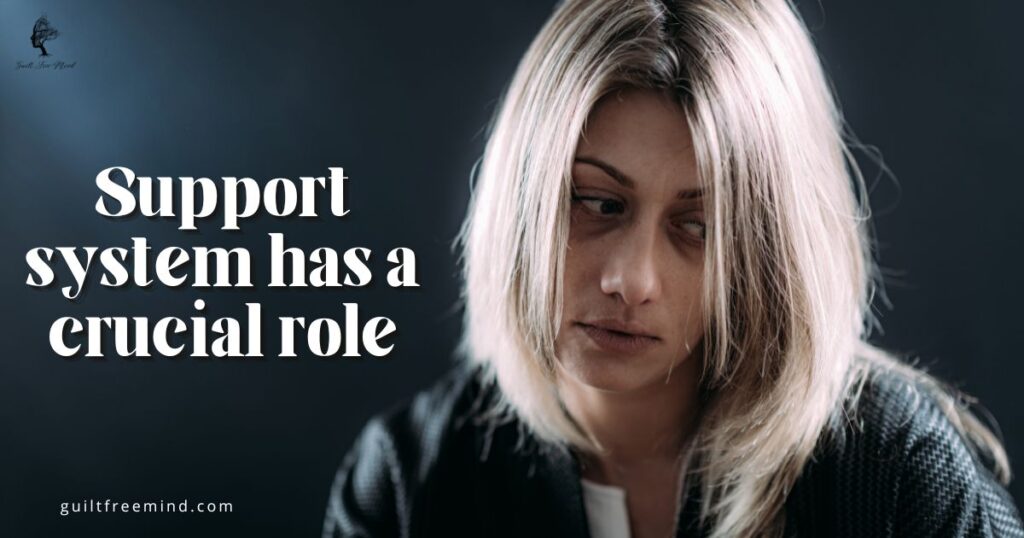
What you should say instead
To support a person who is going through PTSD, here is what you should say and mean:
- I understand that it is a difficult time. Would you like to talk about it?
- It’s OK if you don’t want to talk about it. Tell me, how can I be of help to you?
- I’m here if you need any help
- It will take time, but eventually, things will get better. There is always a light at the end of a dark tunnel.
Conclusion
A person with PTSD only wants your unconditional support and love. Please do not disregard these symptoms as a phase or something that will pass by with time. In most cases, a victim of PTSD will not get better on their own unless they have help from their family members, loved ones, and a mental health practitioner. You can encourage them to start using some self-help options (I will be releasing a blog post about self-help options) for PTSD. If self-help options are not effective, please urge your loved one to meet with a mental health practitioner. A mental health practitioner is more adept and guiding people through difficult situations and challenges in their life. Therefore, do not undermine getting help from a counselor or psychologist.
If you want do you know more about PTSD and other mental health conditions, please subscribe to Guilt Free Mind. I will be releasing more articles on PTSD in the upcoming weeks. Your subscription will allow me to notify you about new blog post releases the moment I release them. If you would like to watch videos, please subscribe to the YouTube channel of Guilt Free Mind. Do not forget to ring the notification bell.
Have you or your loved one experienced PTSD? How did you battle it? What were the self-help options that you used? How did your loved one help you during this difficult journey of life? Please share your experiences in the comment section below. Your experiences and courage can motivate someone else to seek the help they so desperately deserve and need.
See you in my next blog post
